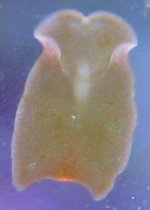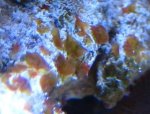brandonberry":1b21cc5f said:
Sketchy or not, it worked for me. After using FE exit I noticed several starting to come back a couple of weeks later. I added a mandarin and within a week I could not find any trace of flatworms. I haven't seen any since and that was several years ago. Is it possible that something else caused them to suddenly die off: yes, but not likely.
I think it is just more likely that they died off than the mandarin ate them because flatworms die off 'on their own' all the time. So much so, that many people recommend no treatment for flatworms, recommending waiting them out instead.
If you actually saw the mandarin eat the flatworms, that might be one thing (although the hit and miss nature of biological pest control still holds), but if you didn't its post hoc ergo proctor hoc reasoning - which always worries me.
If a mandarin works its hit and miss, as you can find many reports of people trying them to control flatworms, but having no effect.
As for the six-line wrasse, I have not personally used this, just read it many times, and heard it from several reputable sources and assumed it to be true.
The hobby is filled with 'old reefers tales' like this - especially regarding biological control of pests. Many of them are not true at all, some of them are based on single or few instances of the animal in question actually eliminating the pest when the majority of the animals don't, and a few of them are true. The problem I have with them is that when someone says something is true, people rush out to buy the animal to fix their problem. Most of the them the animal doesn't do any good dealing with the pests and the person is stuck with an animal they don't really want, and sometimes (in the case of mandarins) an animal they can't take care of properly.
The real point about six lines is that they are often bullies. Getting one to hopefully eat flatworms means that you may be stuck with an aggressive fish for a long time to come, as they can be very, very hard to catch.








